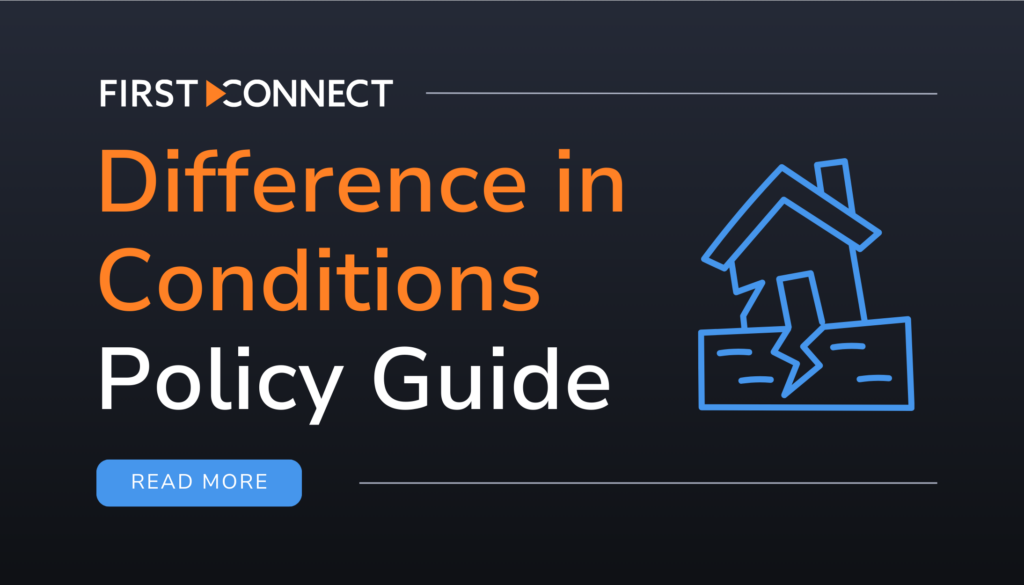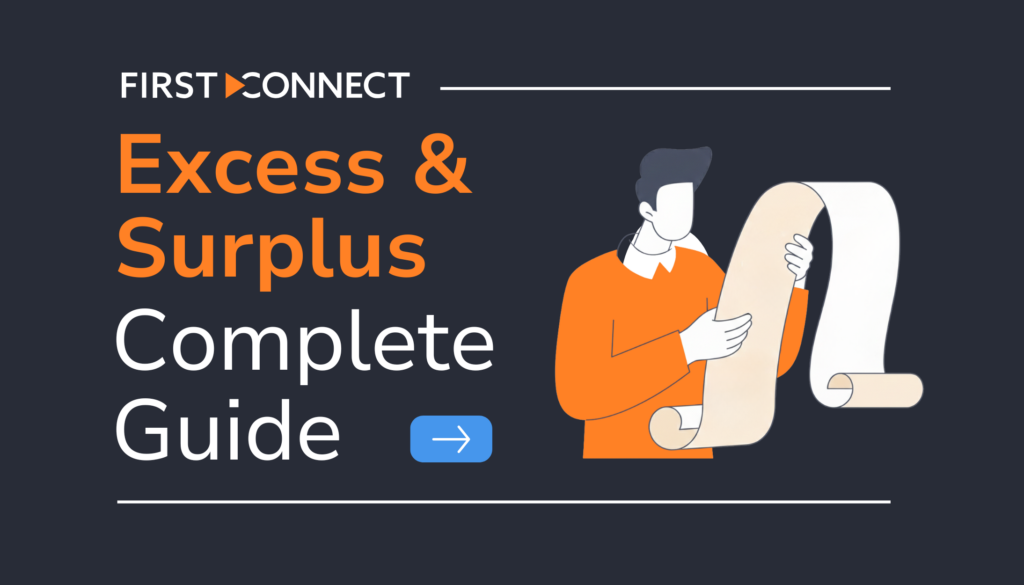How Long Does an Insurance Company Appointment Remain in Force
When an insurance agent wants to sell policies from a specific insurance company, they must first receive an official appointment from that company. This appointment grants them the legal authority to represent and sell that insurer’s products.
However, agents often wonder, “How long does an insurance company appointment remain in force?” It’s important to understand the duration and termination process of these appointments – especially if you wish to build a successful career in the insurance industry. First Connect provides easy access to quote and bind directly, helping independent agents expand their offerings.
This article will explore how long insurance company appointments remain in force when they become active and what factors influence their duration.
- Insurance company appointments typically remain in force indefinitely unless revoked by the carrier or terminated by the agent.
- The appointment becomes active once the insurer officially authorizes the agent to sell its policies.
- The duration of an appointment varies by state regulations, carrier policies, and agent performance.
- Appointments may be revoked due to inactivity, low production, regulatory violations, or changes in carrier distribution strategy.
- First Connect offers access to 130+ carriers , helping agents grow their business quickly and easily.
Independent Agent?
Accelerate Your Agency’s Success
When do insurance company appointments become active?
Insurance company appointments become active when an insurance carrier officially authorizes an agent to sell its products.
Many agencies partner with clusters, wholesalers, or aggregators that help identify the right carrier matches. These partners typically assess key details such as the agency’s years of experience, book of business mix, and other relevant factors. This upfront evaluation helps pre-qualify agencies, saving them time and effort on appointment applications they may not ultimately be eligible for. At First Connect, we proudly perform this pre-qualification process with many of our carrier partners to ensure agents spend their time wisely and pursue opportunities that are truly a fit.
Although the process may vary based on state regulations, carrier policies, and processing times, it may include:
- Application submission: First, the agent must apply for an insurance carrier appointment. This usually involves providing licensing details, background information, and sometimes proof of production history.
- Carrier approval: The insurance company reviews the agent’s qualifications to ensure they meet licensing and compliance standards. Some carriers may require additional training or contracts before approval.
- State registration (if required): In many states, insurance companies must officially register the appointment with the state’s Department of Insurance (DOI) before the agent can sell policies. Some states process appointments instantly, while others may take a few days or weeks.
- Activation confirmation: Once the carrier and state (if required) approve the appointment, it becomes active, and the agent is legally allowed to sell the carrier’s insurance products.
The time frame for activation varies. Sometimes, insurance company appointments are active within 24-48 hours after approval. However, in states where filing with the DOI is necessary, it could take a few days to a couple of weeks. Some carriers also have internal review processes that may delay activation.
Several factors can delay the insurance appointment process. Many carriers conduct background checks as part of their onboarding, and depending on the state, these checks can take anywhere from two weeks to three months. Additionally, submitting incomplete or incorrect paperwork often leads to delays, as it triggers time-consuming back-and-forth communication between the carrier and the agency. At First Connect, we aim to minimize these delays by automating much of the appointment process, helping ensure smoother submissions and faster approvals for our agents.
If you’re an agent, make sure to track your appointment status carefully. This is important because selling a policy before an appointment is active could lead to regulatory issues and may even void the policy.
How long does an insurance company appointment remain in force?
Believe it or not, insurance company appointments remain in force as long as the agent continues to meet the requirements set by the insurance carrier and the state’s regulations. However, the length of time an appointment stays active can vary. Some appointments last indefinitely, while others require renewal and periodic reviews or can be terminated if certain conditions aren’t met.
Let’s look at a few factors that affect how long an insurance appointment remains in force.
State regulations
Each state has different rules that govern the duration and renewal of insurance appointments. Some states require annual renewal, while others allow appointments to stay in force indefinitely unless the carrier or agent chooses to terminate them.
For example, in Florida, carriers must renew appointments every two years. However, in Texas, an appointment can remain in effect indefinitely as long as the agent maintains an active license and complies with carrier policies.
Carrier policies
Every insurance company sets its own rules to maintain an appointment. Some carriers automatically renew appointments every year, while others require agents to meet specific conditions, such as selling a minimum number of policies or completing training.
Agent production requirements
Many insurance companies require agents to maintain a certain level of sales activity to keep their appointments active. If an agent goes too long without selling a policy, the carrier may see them as inactive and terminate the appointment.
For instance, an agent selling auto insurance with a carrier may be required to sell at least 10 policies per quarter. If they fail to meet this threshold, the provider could terminate their appointment due to inactivity.
Many agencies that are hit with losing appointments — or find themselves unable to get appointed with carriers because they don’t produce enough — come to First Connect for help. We provide access to top carriers without strict production requirements, helping agents stay active and competitive.
Licensing and continuing education (CE) compliance
To maintain an appointment, an agent must keep their insurance license active and comply with continuing education (CE) requirements. If an agent fails to renew their license or complete the necessary CE courses, the state could suspend or revoke their license, which may lead to automatic termination of their appointments.
For example, in California, licensed insurance agents must complete 24 hours of CE every two years. If an agent fails to complete this requirement, their license may expire, causing all their active appointments to be revoked.
Business and market conditions
Sometimes, an insurance company may decide to restructure its distribution strategy, which often leads to the termination of appointments.
This can happen when:
- A carrier merges with another company, and the new company chooses to reduce the number of agents.
- The carrier stops offering certain types of insurance, making some agent appointments unnecessary.
- The company shifts to a different distribution model, such as moving from independent agents to direct-to-consumer sales.
Terminating insurance company appointments
The termination of an insurance company appointment happens when an insurance carrier officially ends its relationship with an agent. This means the agent is no longer authorized to sell that company’s insurance products.
Termination can happen for several reasons, including inactivity, failure to meet carrier requirements, or changes in business strategy.
To terminate an agent’s appointment, an insurance company must follow specific procedures, such as:
- Notice of termination: The insurance carrier sends a formal notice to the agent informing them of the upcoming termination. Most states require advance notice, which can range from a few days to several weeks, depending on state laws and the carrier’s policies.
- State filing: In most states, the insurance company must officially report the termination to the state’s Department of Insurance (DOI). This ensures that the state records are updated, and the agent is no longer listed as authorized to sell that carrier’s products.
- Final compliance check: If the termination is due to an issue such as missing continuing education (CE) credits or license expiration, the agent may have a brief window to correct the problem and request reinstatement. Some carriers allow agents to fix compliance issues within 30–60 days to avoid losing the appointment.
- Official termination: Once the process is complete, the agent can no longer sell or service policies for that carrier. However, some carriers continue to pay commissions for past sales, depending on the contract terms.
Losing an insurance company appointment can be a major setback for an agent, which limits access to key products and reduces earning potential. While some terminations are beyond an agent’s control, most can be avoided by following best practices.
Following are some ways to maintain your appointments and keep your business running smoothly.
- Meet Production Requirements: Ensure you consistently sell policies and maintain the carrier’s minimum thresholds.
- Stay Compliant: Make sure to adhere to all regulatory requirements and ethical sales practices.
- Provide Excellent Customer Service: Build positive relationships with clients to minimize complaints.
- Diversify Carrier Partnerships: Work with multiple carriers, such as those offered through First Connect, to reduce dependency on a single appointment.
At First Connect, our carriers relationships offer a distinct advantage over traditional direct appointments. While many direct carrier appointments require agents to go through lengthy application and vetting processes, our platform streamlines access, thanks to established partnerships with carriers ranging from open distribution models to those with more selective criteria. By working with us, agents gain easy and fast access to a broad network of appointment opportunities to grow their business without unnecessary delays or barriers.
Ready for Takeoff?
Get Free Carrier Access & Skyrocket Your Agency
FAQ
-
How many days does an agent have to receive an appointment after the issuance of an insurance contract?
According to most insurance regulations, an agent typically has 15 days to receive an appointment from an insurer after the issuance of an insurance contract. This means the insurance provider must formally appoint the agent within 15 days of the policy being issued.
-
Under what condition may an insurance company cancel an in-force permanent life insurance policy?
An insurance company may cancel a permanent life insurance policy under specific conditions, including non-payment of premiums, material misrepresentation on the application, or fraud. Unlike term policies, permanent life insurance typically remains in force as long as premiums are paid.
-
What happens to an agent’s license after all notices of appointment have been terminated?
If an agent’s appointments are terminated, their license remains valid as long as they meet state renewal and continuing education requirements. However, without an appointment, they may not be able to sell specific carriers’ products.
-
Can an insurance company refuse to cancel?
Yes, in some cases, an insurance company may refuse to cancel a policy if there is an outstanding loan balance or if the cancellation request does not meet contractual requirements.
-
What are some common reasons for insurance company appointment terminations?
Insurance company appointments can be terminated for a number of reasons, including low production, compliance violations, unethical practices, and carrier distribution strategy changes.
-
What’s the difference between getting a direct appointment or getting access to a carrier via an MGA?
Getting a direct carrier appointment means your agency contracts directly with the insurance carrier, allowing you to represent them, access their full product suite, and receive commissions straight from the carrier.
Alternatively, some carriers are accessed through an MGA (Managing General Agent), which serves as the intermediary between the agent and the carrier. In these cases, you’re writing business under the MGA’s appointment, and commissions are paid by the MGA. For example, First Connect partners with select MGAs who grant access to their contracted carriers, allowing First Connect agents to quote and bind with those carriers without needing a direct appointment. This structure makes it easier for agents to access more markets with less administrative burden.



